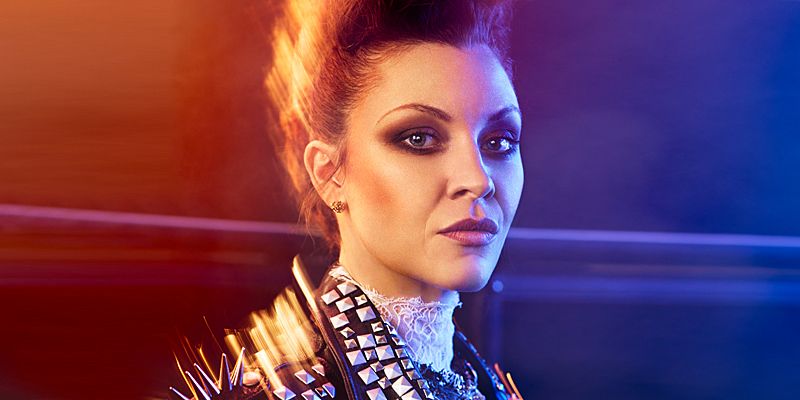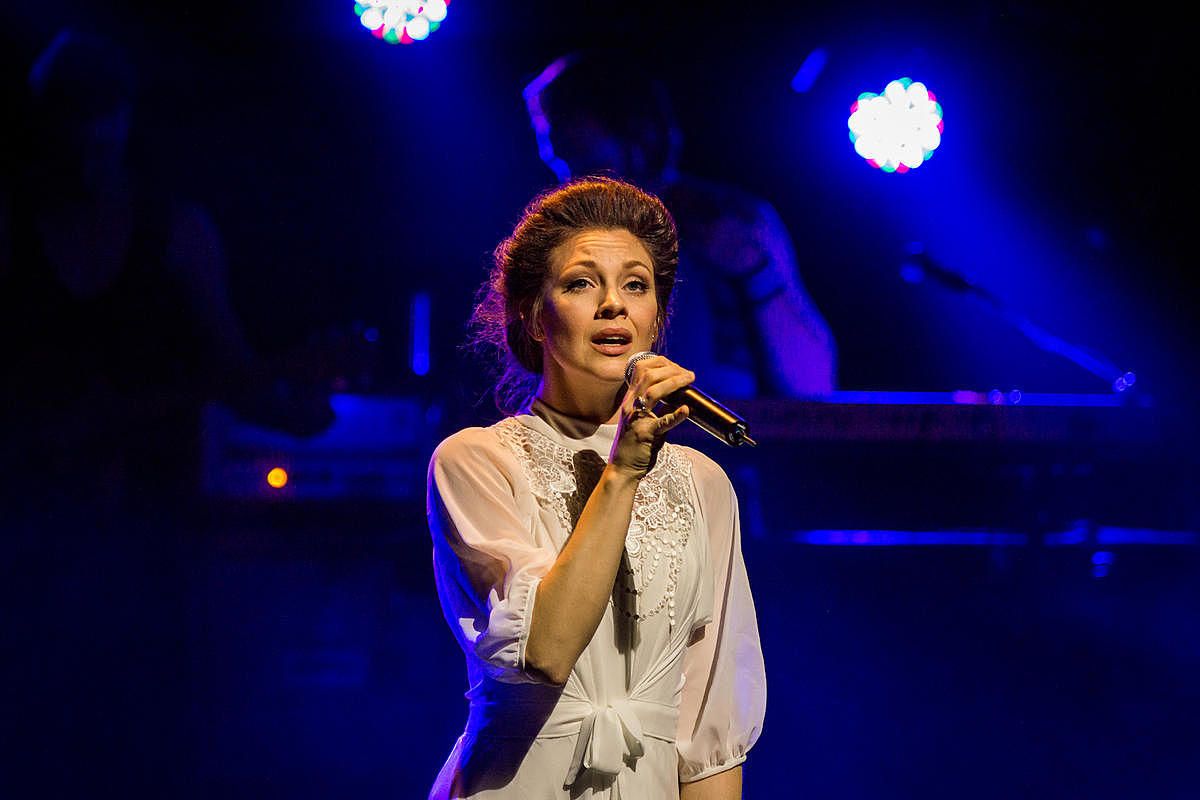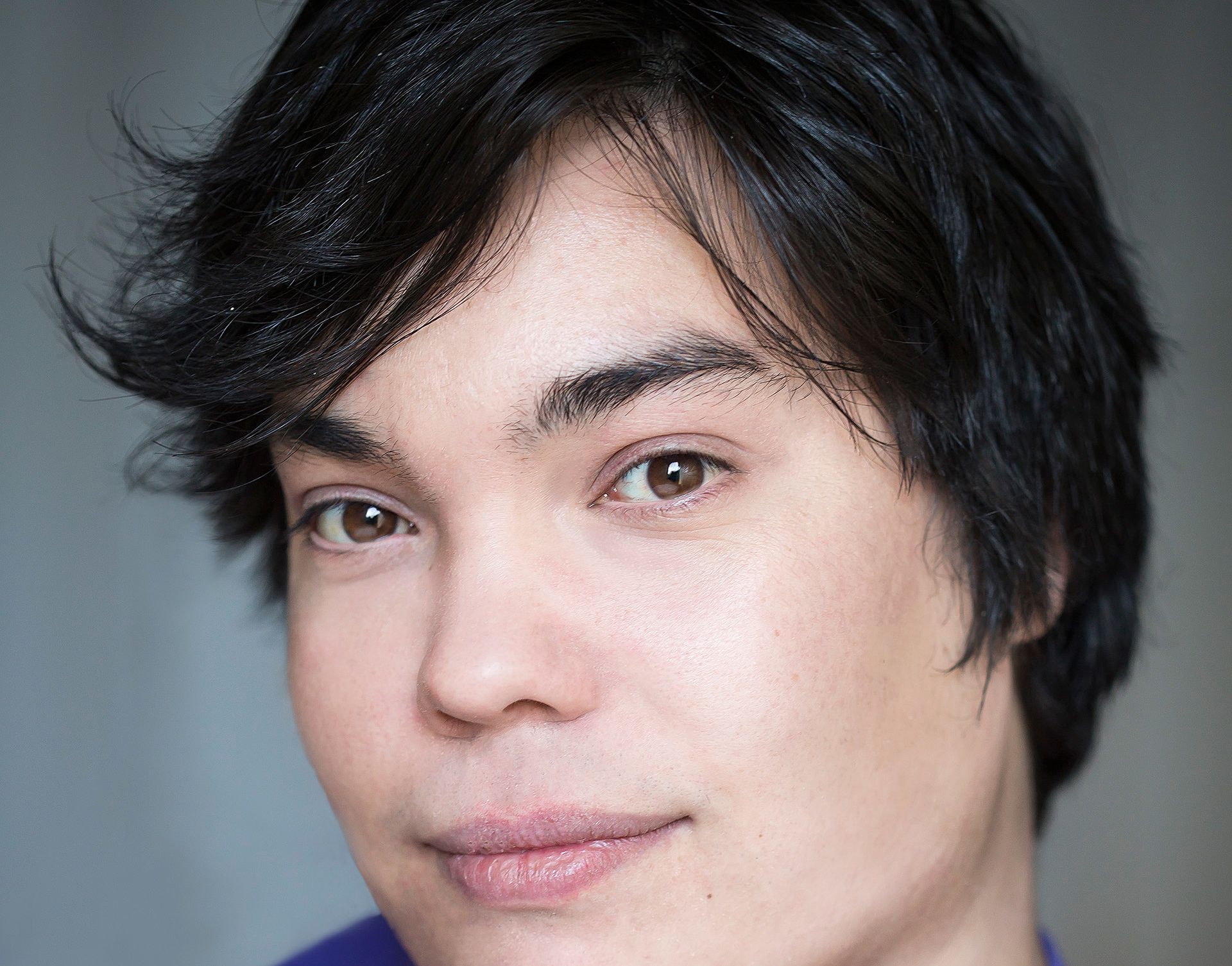Review: That Bloody Woman
A rock musical about our country’s most famous suffragette continues The Auckland Theatre Company’s string of successful musicals. That Bloody Woman’s tremendous cast and energetic production more than make up for the flaws of the book.
A rock musical about our country’s most famous suffragette continues The Auckland Theatre Company’s string of successful musicals. That Bloody Woman’s tremendous cast and energetic production more than make up for the flaws of its book.
The Auckland Theatre Company know how to do a great musical. Theirs become the must-see event of the season for regular theatregoers, musical die-hards and casual audiences alike. They did it with Chicago, they did it with Jesus Christ Superstar, and although they missed the mark with Guys and Dolls (which lacked the spectacle and reinvention that made its predecessors massive successes), they’re back to form with That Bloody Woman, a rock-musical about New Zealand’s own iconic suffragette, Kate Sheppard.
That Bloody Woman comes off a premiere season in last year’s Christchurch Arts Festival, with the creative team and cast intact. It bears Kip Chapman’s energetic stamp, last seen in Hudson and Halls Live!, and staging the entire thing like an eighties glam-rock concert ensures we’re not comparing this show to anything else. The show never forgets that it’s a piece of theatre though, and the theatrical elements are what make this more than a rock concert – especially Rachel Walker’s sets and Lisa Holmes’ costumes, both of which have the stand-out, mouth-open-wide grandeur expected of an ATC musical.
This isn’t a show where we politely clap and wipe tears away at the end of the Act One closer; it’s a show where we yell out and boo when somebody says something we don’t like, and where we’re encouraged to be a part of it. It presents feminism as a struggle that we’re all a part of, not something to watch unfold onstage. This involvement, this call to action, is a crucial part of the production being the crowd-pleasing, rabble-rousing success that it is.
The songs support and demand this kind of energetic production and reception. They’re a lot of fun, sitting solidly in the realm of glam rock, with occasional steps into more traditional musical balladry, pop-rock and even punk rock. Sensibly, co-writers Luke di Somma (who also serves as musical director) and Gregory Cooper have placed the songs front and centre as the highlight. You can sense that some will become standards for auditions, while others are likely to wind up as drunk karaoke staples. Simply being memorable is an achievement as is, but when songs sit together as well as these ones do, it’s a masterclass in how to do the artform correctly.
The show rests on Esther Stephens’ rendition of Kate Sheppard, presented as an intelligent, tired and righteously angry woman with a sharp tongue. Stephens has the voice to carry the musical: pure and strong, never lost or muffled by the oppressive soundscape. She also has the rockstar charisma required to give the audience an important focal point in a chaotic milieu: when the lights are going, the smoke is filling the stage and the guitarist is riffing, she’s still where we’re looking . She has a compelling composure that jars against the loose roadie energy of the rest of the cast, making each burst into song convincing and powerful. Sheppard the character can’t hide behind her wit or behind her arguments – she has to sing.
The rest of the cast hold their own, but especially tremendous is Phoebe Hurst. She holds her own in the bigger numbers, with a huge, robust voice. It’s her soft ballad towards the middle of the show, though, singing as a wife who can’t accept the supposed happiness that’s been thrust upon her, where the tender heart of the show lies. Hurst makes very real the plight of women, and the cost of what happens if Sheppard doesn’t get what she’s fighting for.
What lets the production down is the book, also written by Luke di Somma and Gregory Cooper. The frame of the musical itself is engaging and neat; it’s less of a standard song-and-dance format than a rock opera, with each songs moving the narrative forward and Kate Sheppard filling in the gaps with direct address. But the show drops into a lull whenever the singing stops for too long. Cooper’s jokes are often dated (a reference to Clint Eastwood yelling at a chair at the 2012 Republican National Convention was already old a few weeks after that event, so it’s even worse four years later), and when they’re not, they’ve still been done before, in fresher and more authentic contexts. It’s not that I don’t buy that Kate Sheppard would say these things, it’s that I don’t believe that the show’s version of Kate Sheppard would say them. There’s an Off-Broadway archness and glibness (think Twisted, Bare: A Pop Opera, Altar Boyz) that’s at odds with the subject matter, the immense heart and energy at the centre of the show, and it’s a tension that That Bloody Woman only just overcomes.
The book also leads to the weakest and most uncomfortable part of the show. Late in what would be the second act of the show, the plot of Kate Sheppard riding around New Zealand getting votes for her petition stops entirely to discuss her relationships with three men: her husband, the man she truly loved and her son. This isn’t an inherently bad decision – these men were clearly important parts of her life – but at this point the show has forgotten about the men for almost an hour, and bringing them back, especially in such a generic way, stops the show dead in its tracks.
The men she loves are broad outlines, although they’re both ably performed by Cameron Douglas and Kyle Chuen, and a ballad directed towards her son is less effective still, since we’ve barely heard of him by that point. It feels like an attempt to give Sheppard an inner conflict. But, when you have a performer as strong as Stephens, an external conflict as strong as the patriarchy, and songs as good as these, we don’t need three generic relationships with men to flesh the character out. Even less so in a show that’s so explicitly about a woman’s struggle for all women to have agency and power outside of men, and especially when it gets in the way of that story like it does here.
The show also engages in a kind of Feminism 101 think-piece summarising that is alternately admirable and frustrating. Admirable that a mainstream show is unashamedly engaging an audience in feminism and educating them its history of feminism and enduring importance - frustrating that it frequently doesn't go beyond surface-level sentiment.
Sheppard's anger and her sadness, at least when spoken, is expressed in modern, popular terms and concepts, which make it difficult to connect with the human being. When she rightfully and righteously rolls her eyes at the harmful #NotAllMen hashtag, we agree with her, but we don’t feel her. She’s less a human and more one of many voices we see on a Facebook feed every day. One of the greatest assets of a musical is that it skips the head and hits us right in the heart, and in these moments That Bloody Woman instead panders to the kind of feminism an ATC-going audience is trained to understand, rather than the more difficult and visceral struggles that sit underneath it.
This aside, That Bloody Woman is an achievement on so many levels. It’s a brand new musical with entirely original songs, a mainstage show that makes us engage with our history, and examine what that history means to us. We don’t get those shows often, and it’s a treat to get a show of this calibre that’s as committed to the audience having a good time as this one is. It’s ATC not only doing what they do best, but uplifting a creative team to do what they do best for a wider audience.
When the music stops and people start talking, the show sits as an inert retelling of history. But when three women stand at the front of the stage, rock-screaming “Enough! Enough! Enough!”, it comes alive. It channels a pivotal, real historical moment from over a hundred and fifty years ago and hits the audience right in the gut. There are enough of these moments throughout the show to make That Bloody Woman a great show, and even an important one. It makes us angry and feel for people we’ve never met, but whose struggle resonates and continues through to today.
That Bloody Woman runs at
Sky City Theatre
from Thursday June 9 to Sunday June 26
For tickets and more information, go here.


